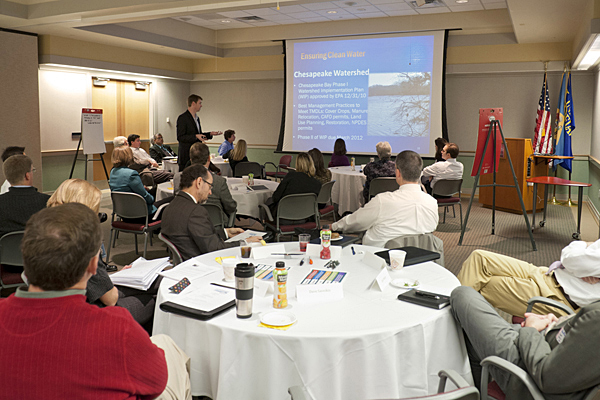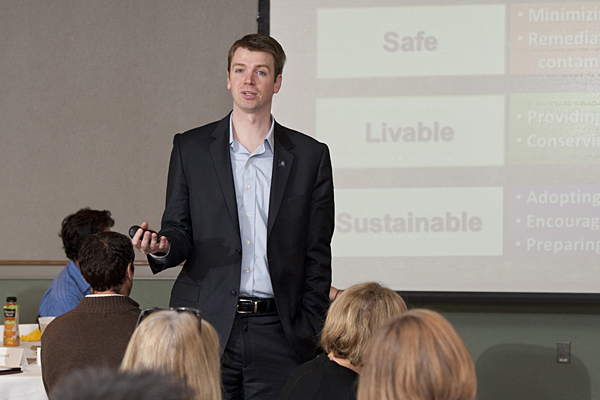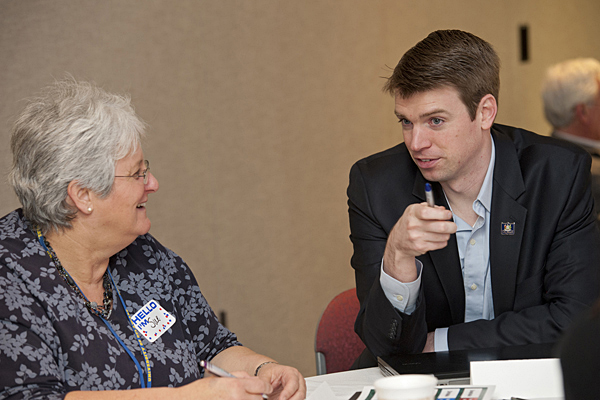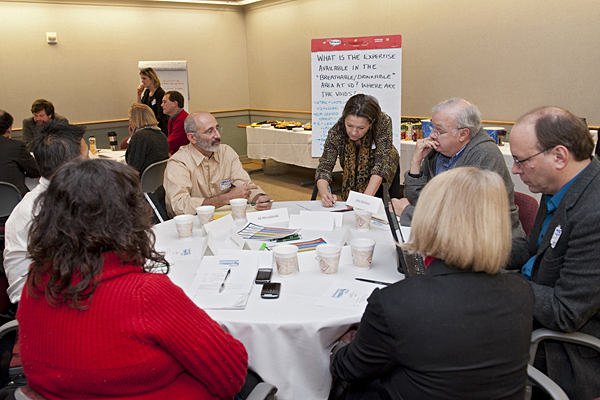


Coffee and collaboration
DNREC leadership joins UD environmental faculty for lively EcoCafe discussion
2:50 p.m., Jan. 13, 2012--Leaders of the Delaware Environmental Institute (DENIN) and the Delaware Department of Natural Resources and Environmental Control (DNREC) spent the morning of Dec. 14 getting to know one another better at the most recent EcoCafé workshop held at the Delaware Biotechnology Institute in Newark.
“EcoCafés” are breakfast meetings hosted by DENIN several times a year that are designed to increase communication and collaboration between University of Delaware researchers and DNREC personnel working on related environmental challenges.
Research Stories
Chronic wounds
Prof. Heck's legacy
The latest event was unusual, however, in that it included DNREC Secretary Collin O’Mara and directors of most of the department’s eight divisions, including the divisions of energy and climate, air quality, waste and hazardous substances, water, watershed stewardship, fish and wildlife, and parks and recreation.
The goal of this special EcoCafé gathering was for the DNREC leadership team to present their goals and priorities as well as needs for data and research to UD faculty doing similar work.
Following a welcoming presentation about DENIN by its director Don Sparks, Secretary O’Mara described his department’s quest to ensure that Delaware is a place that is “breathable, drinkable, safe, livable and sustainable.”
“A strong economy depends upon a healthy environment,” O’Mara told the group, “and smart environmental policy can help drive economic growth.”
The 35 attendees were then divided into small discussion groups along these subject lines and asked to identify expertise, research questions, and mechanisms for future collaboration in each area in greater depth.
Still, the participants wanted more.
“We hope this is just the beginning of a series of conversations,” said Sue Barton, assistant professor of horticulture and leader of the “livable” discussion group. “The consensus in our group was that we definitely needed more time to explore the resources and possibilities for collaborative research and education.”
The DENIN staff plans to organize more EcoCafé workshops around each of the discussions and their common themes and involve more faculty in future sessions.
“Faculty at UD and the staff at DNREC have always shared a common goal of protecting Delaware’s environment,” said Sparks, “but we haven’t always known how to find the right person to work with at the other organization. We are pleased that DENIN can serve as a point of contact and a hub for connecting people at DNREC with people at UD who have common interests.”
Article by Beth Chajes
Photos by Evan Krape











